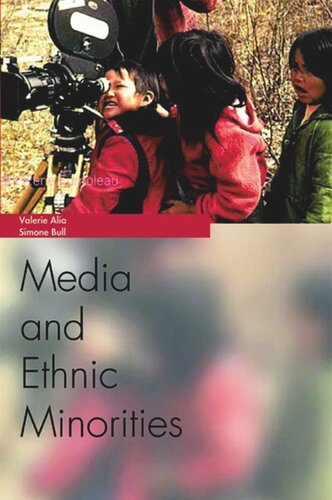

Most ebook files are in PDF format, so you can easily read them using various software such as Foxit Reader or directly on the Google Chrome browser.
Some ebook files are released by publishers in other formats such as .awz, .mobi, .epub, .fb2, etc. You may need to install specific software to read these formats on mobile/PC, such as Calibre.
Please read the tutorial at this link: https://ebookbell.com/faq
We offer FREE conversion to the popular formats you request; however, this may take some time. Therefore, right after payment, please email us, and we will try to provide the service as quickly as possible.
For some exceptional file formats or broken links (if any), please refrain from opening any disputes. Instead, email us first, and we will try to assist within a maximum of 6 hours.
EbookBell Team

4.7
106 reviewsGBS_insertPreviewButtonPopup('ISBN:9780748620692);
This book addresses cross-cultural representations of ethnic minority peoples by dominant society 'outsiders' and indigenous self-representation in the context of the 'New Media Nation'. In doing so, it explores the role of language, culture, identity and media in liberation struggles and the emergence of new political entities, and opens up issues of colonial oppression to public debate. It is intended to help inform policy in a variety of settings. Grounded in current perspectives on diaspora and homeland and drawing on Alia's work on minorities, media and identity as well as Bull's work on Maori socio-cultural issues and criminalisation of minorities, this volume offers a comparative, international perspective on the experiences of a broad range of ethnic minority peoples. These include Inuit and First Nations people in Canada; Native Americans and African Americans in the United States; Sámi in northern Europe; Maori in New Zealand; Aboriginal people in Australia and Roma in Ireland and Britain.
Key Features